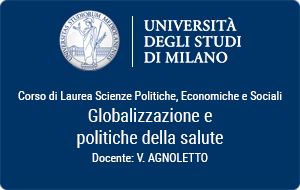TO MAKE THE RIGHT TO HEALTH UNIVERSAL.
The 8th World Social Forum for Health and Social Security (WSFHSS – FSMSSS) took place at the University of Bogotá from 26 to 28 June. The Forum is the result of a long journey that has involved many Latin American countries, especially Colombia, Brazil, Paraguay, Uruguay, Ecuador, Venezuela, the Dominican Republic and Peru, through conventions and public meetings; the Forum was also attended by activists from other countries, for example from Italy, France, Spain and India.
Luz Teresa Gomes, deputy director of the University of Bogotá, in the opening speech recalled the hundreds of human rights activists murdered in her country since the beginning of the year; his speech launched a clear message: human rights, social participation, the fight against poverty are essential elements, social determinants that affect public health conditions.
In the introductory report the Brazilian professor Armando De Negri Filho illustrated the origin and development of the FSMSSS, its challenges and contributions it can provide to a global transformation agenda.
On the other hand already the titles of the plenary sessions with which the Forum opened on the first day: “Social Protection, Democracy and Peace”, “Social Protection, Development and Environmental Justice”, “Social Protection, Economic, Fiscal and Social Justice “made explicit the conviction that the defense of public health is an essential element that links the struggle for social justice and that for environmental justice.
For these reasons it is important to be able to come to the shared endorsement of a Global Charter for Social Protection Rights.
The goal of building national health systems accessible to all and universal social protection systems clashes, even in Latin America as it does all over the world, with attempts to privatize health led by governments in agreement with large financial funds and with the development of private insurance also in the area of pensions.
In Bolivia a great result has been achieved: a few months ago, a Universal National Public Health Service was active; it had been decided eight years ago but it took a very long time to start it.
But in the other countries of the region, history goes in the opposite direction: in Perù political power tends to transform all health services into a private public partnership; in Colombia, despite the opposition of a strong network of social activists, health professionals and university professors coordinated by the tireless Nancy J. Molina A, many public health services have recently been closed; in Brazil there are dramatic social consequences of the authoritarian drift imposed by President Bolsonaro: the minimum wage has been blocked at the levels of 2016, while already Temer, the previous usurper president, had established that general public spending in the next twenty years will not be able to exceed the level of that of 2016; strong is the push to change the pension system delivering it in the hands of insurances, this project has found for now an opposition of a significant part of the Parliament but it would seem destined to be approved.
In Brazil, the tools for building social justice and redistributing wealth towards the poorer classes approved by previous governments are also at risk. Often these forms of protecting individuals and supporting the economy constitute an important part of the resources of a village and a city and are essential for making the economy work.
During the Forum there was also a meeting between parliamentarians from some of the Latin American countries with the aim of building a common social agenda to oppose and resist neoliberal policies.
The goal with which we are left is to arrive at the next world appointment through the organization of regional meetings on all continents because there is no doubt that the protection of health and social security is today one of the main points through which passes opposition to liberal policies around the world.
Vittorio Agnoletto Executive Commitee of WSFHSS






